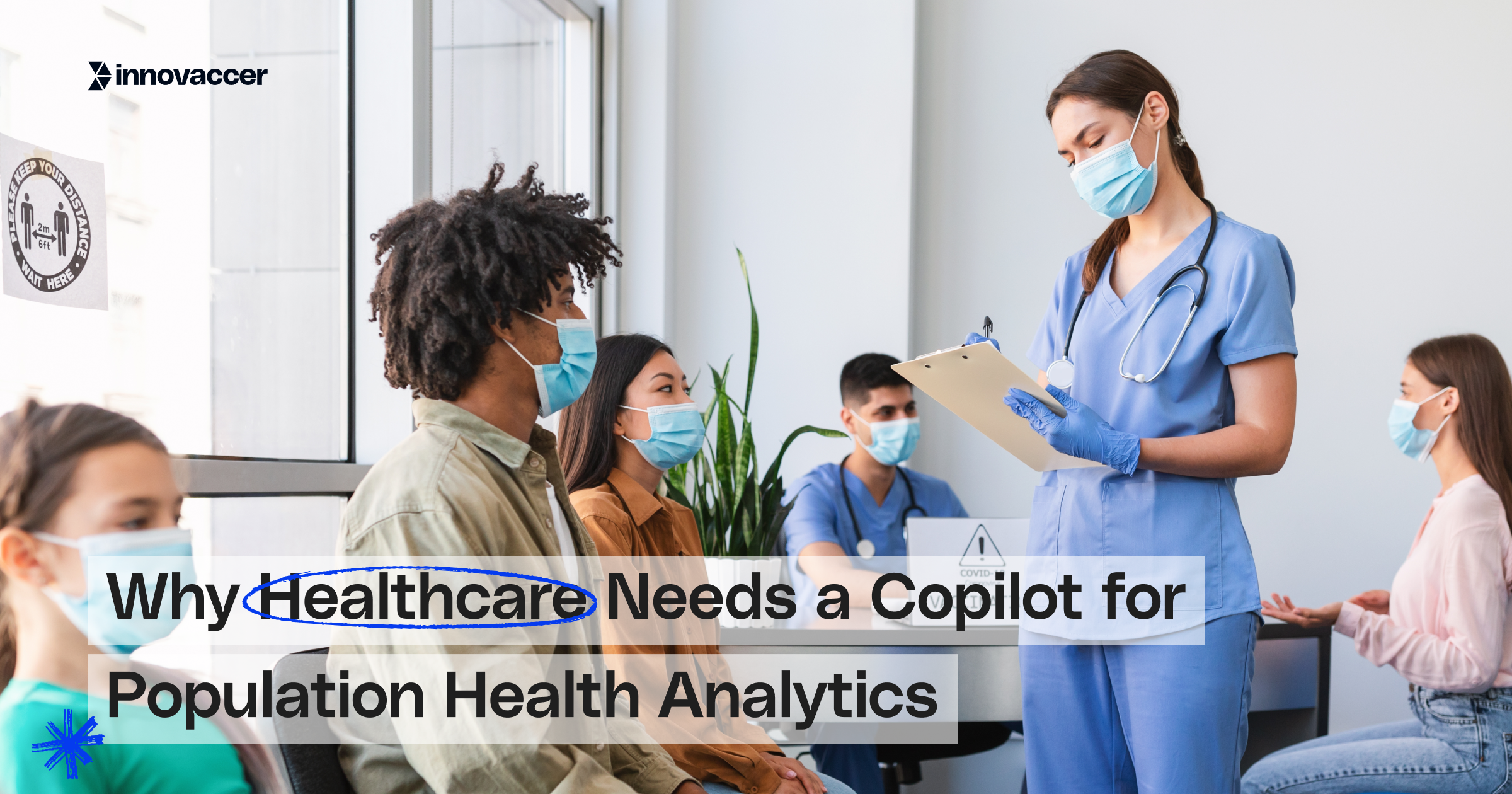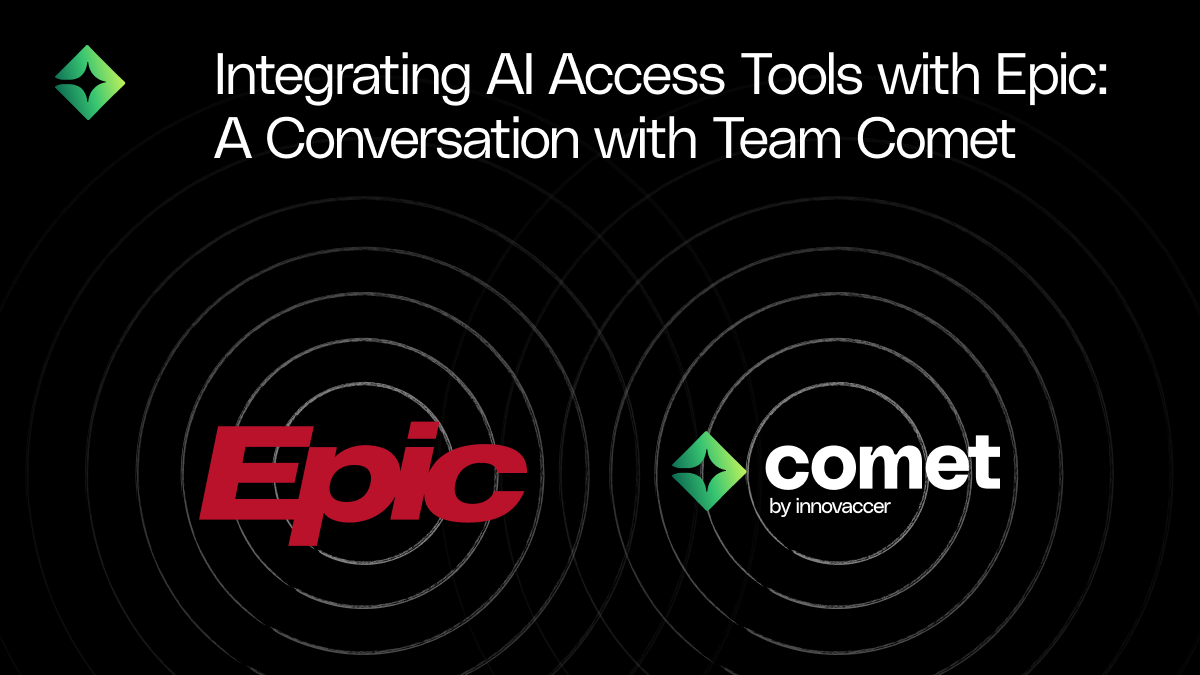Why Healthcare Needs a Copilot for Population Health Analytics


In a world where the healthcare industry generates around 30% of all data, why do leaders still struggle to extract real-time and actionable insights? As evident, the problem isn’t a lack of data, the problem is our approach to using it. Healthcare leaders are drowning in dashboards and outdated analytics models that create more noise than clarity. This approach slows decision-making and makes it difficult to manage the health of the patient population proactively.
As a healthcare executive, you must have come across a situation where you are trying to identify key trends but are unable to do so due to an exhaustive manual reporting process and siloed systems. This causes important insights to arrive too late for you to guide interventions effectively.
This is where an AI-powered copilot can make a real difference. By helping leaders get quick insights in plain English and by digesting complex data and uncovering patterns, Innovaccer’s Population Health Co-pilot makes it easier for executives to make proactive and timely decisions.
Let’s break down how the new Population Health Co-pilot is more essential than ever for healthcare leaders.
The Problem: Why Traditional PHM Analytics Falls Short
In spite of evolved technologies, decision-making still remains limited because of historical data. This delays decision-making when immediate action is necessary. Some of the common challenges of traditional analytics in population health management are:
- Data silos impacting decision-making: As a healthcare leader, you need a clear, real-time view of your population’s health. But, instead critical patient data is trapped across claims systems and EHRs. The result? Delayed interventions and a constant struggle to align clinical and financial priorities.
- Dependency on data analysts: If you want to figure out which of the high-risk patients have missed out on preventive screenings, getting the data from the analytics team can take a long time, even weeks or months. This kind of cycle makes decision-making slow because it fails to give you just-in-time insights for the effective allocation of resources and managing upcoming health risks.
- Time-consuming manual reporting: If your team is still relying on outdated data reporting methods that require significant manual effort, you’re forced to make decisions based on stale insights.
- Limited access to advanced analytics: As a healthcare leader, the complexity of integrating AI-driven analytics with your existing infrastructure can limit access to real-time, actionable insights. The absence of these advanced capabilities makes it harder to make data-driven decisions and prevents you from improving population health outcomes.
- Reactive rather than proactive decision-making: Since traditional PHM models are more focused on addressing issues after they emerge, this reactive approach can lead to missed opportunities for early interventions.
How Leaders Can Improve Patient Care with Innovaccer’s Population Health Co-pilot
The Population Health Copilot eliminates these barriers, empowering users to make more proactive decisions. With the Co-Pilot, leaders will no longer have to wait for fragmented reports and can directly access predictive intelligence that highlights risks and enables timely interventions. This is especially needed as healthcare shifts toward value-based care and preventive intervention.
The Population Health Copilot is the perfect companion to have for faster, more accurate, and more intuitive decisions. With enhanced predictive modeling, conversational analytics, and seamless data integration, this copilot is empowering healthcare leaders to move beyond traditional reporting and embrace truly intelligent population health management.
Benefits of Population Health Copilot for Leaders:
Robust Data Security and Compliance
When dealing with sensitive population health data, security is non-negotiable. The Population Health Copilot is built with enterprise-grade security protocols and complies with key healthcare regulations like HIPAA. From encrypted data storage to role-based access controls, every layer is designed to safeguard patient privacy. You can harness powerful insights with complete peace of mind, knowing your data is protected every step of the way.
Data-Driven Decision Making with Full Transparency
Population health analytics can often operate as black boxes making it difficult for you to trust AI-driven insights. But, the population health copilot follows a clear chain-of-thought approach. Each complex query is broken down into clear steps. Transparency in how insights are generated gives you the necessary confidence to make data-driven decisions.
Faster Strategic Planning with Real-Time Insights
While traditional analytics can force you to wait for months to get your hands on meaningful reports, Population Health Copilot does it quickly. It processes vast population health data almost instantly, allowing you to track emerging health trends and intervene before small issues escalate.
Predicting Risks Before They Become Crisis
Population health management shouldn't just be about reacting to issues, it should be about preventing them. The Population Health Copilot leverages predictive modeling to identify at-risk populations before crises occur. By flagging emerging trends in chronic diseases, social determinants, and care gaps, it empowers you to take proactive action, ensuring better health outcomes at scale.
Boosting Efficiency While Cutting Costs
Handling population health data the old-fashioned way can not be just slow, but also quite costly. With a Copilot, you can automate those tedious tasks like data aggregation and reporting. It also identifies areas of high risk in real time, allowing you to allocate your resources more judiciously and drive cost savings for your organization.
The Future of PHM Is Here—Act Now with a Population Health Copilot
As the industry accelerates toward value-based care, leaders who fail to embrace AI-driven, real-time decision-making will find themselves falling behind. The future of PHM isn’t passive, it’s predictive, AI-powered, and action-driven.
The only question is: will your organization lead this transformation—or struggle to catch up?
Looking to learn more about the potential of copilots in transforming population health and more? Get in touch with us.


.png)



.png)



.avif)









.svg)
.svg)

.svg)

